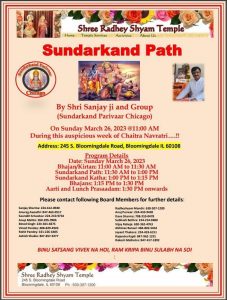Calendar
| Sun | Mon | Tue | Wed | Thu | Fri | Sat |
|---|---|---|---|---|---|---|
| Sunday Bhajan and Satsang 11:30 am Sunday Bhajan and Satsang Dec 1 @ 11:30 am – 1:00 pm  Every Sunday, we have SATSANG (Bhajans, kirtans, Kathas etc.) From 11:30 AM – 01:00 PM followed by Aarti and Prasadam (Lunch) | ||||||
| Sunday Bhajan and Satsang 11:30 am Sunday Bhajan and Satsang Dec 8 @ 11:30 am – 1:00 pm  Every Sunday, we have SATSANG (Bhajans, kirtans, Kathas etc.) From 11:30 AM – 01:00 PM followed by Aarti and Prasadam (Lunch) | ||||||
| Sunday Bhajan and Satsang 11:30 am Sunday Bhajan and Satsang Dec 15 @ 11:30 am – 1:00 pm  Every Sunday, we have SATSANG (Bhajans, kirtans, Kathas etc.) From 11:30 AM – 01:00 PM followed by Aarti and Prasadam (Lunch) | DURGA MATA KI CHOWKI 5:00 pm DURGA MATA KI CHOWKI Dec 21 @ 5:00 pm – 10:00 pm 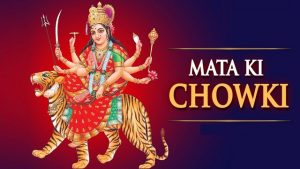 If you would like to host the Mata Ki Chowki at Shree Radhey Shyam Temple, Contact : Raja Sharma 708-822-6656 Maa Durga is revered as the Mother Goddess among the Hindu... | |||||
| Sunday Bhajan and Satsang 11:30 am Sunday Bhajan and Satsang Dec 22 @ 11:30 am – 1:00 pm  Every Sunday, we have SATSANG (Bhajans, kirtans, Kathas etc.) From 11:30 AM – 01:00 PM followed by Aarti and Prasadam (Lunch) | ||||||
| Sunday Bhajan and Satsang 11:30 am Sunday Bhajan and Satsang Dec 29 @ 11:30 am – 1:00 pm  Every Sunday, we have SATSANG (Bhajans, kirtans, Kathas etc.) From 11:30 AM – 01:00 PM followed by Aarti and Prasadam (Lunch) |
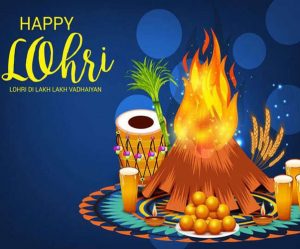
06.00 pm – 08.00 pm Bhajan and Lohri Celebration
07.00 pm Arti followed by Prasad
It is believed by many that the festival marks the passing of the winter solstice. Lohri marks the end of winter, and is a traditional welcome of longer days and the sun’s journey to the northern hemisphere by people in the northern region of the Indian subcontinent. It is observed the night before Maghi, also known as Makar Sankranti, and according to the solar part of the lunisolar Vikrami calendar and typically falls about the same date every year (13 January).
Bhajans by Ajay Yagnik
Ram Navami Celebrations with Akhand Ramayan Path
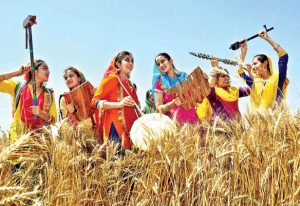
Vaisakhi is a harvest festival for people of the Punjab region. In the Punjab, Vaisakhi marks the ripening of the rabi harvest. Vaisakhi also marks the Punjabi new year. This day is observed as a thanksgiving day by farmers whereby farmers pay their tribute, thanking God for the abundant harvest and also praying for future prosperity.
Vaisakhi is traditionally observed on 13 or 14 April, every year. For many Hindus, it marks the solar new year.
Vishnu Sahasranama (Sanskrit: विष्णुसहस्रनाम, IAST: Viṣṇusahasranāma), is a Sanskrit hymn which contains a list of 1,000 names of Vishnu, one of the main deities in Hinduism and the supreme God in Vaishnavism. It is one of the most sacred and popular stotras in Hinduism.
Happy Father’s Day
Father’s Day celebration is observed to honor fathers, father-like figures and paternal bonds around the world. Children and individuals showcase their love and affection to their fathers and present them with gifts and cards.
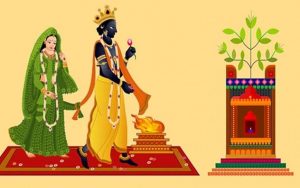
Tulasi Vivah
Tulsi Puja plays a very significant role for Hindus. It is believed that on this day, Lord Vishnu married Goddess Tulsi in the form of Shaligram or his Shri Krishna avatar on Prabodhini Ekadashi. As per the Hindu scriptures, Tulsi Mata is said to be the avatar of Goddess Lakshmi who is the wife of Lord Vishnu. She took birth as Vrinda, as the legends say. Hence, this day is considered to be the most auspicious day for conducting rituals and ceremonies related to marriage along with Kanyadaan.
Married women across India perform the Tulsi Vivah puja for the well-being of their husbands and family members. The Hindus worship the tulsi plant, and Tulsi herself is thought to be an incarnation of Goddess Mahalakshmi, who was previously known as ‘Vrinda.’ To obtain marital bliss, young women pray to Goddess Lakshmi with full dedication. Young, unmarried women also follow Tulsi Vivah rituals in order to find good husbands. Also, many schedule their marriage on Tulsi Vivah day as it blesses the couple with blissful married life.

